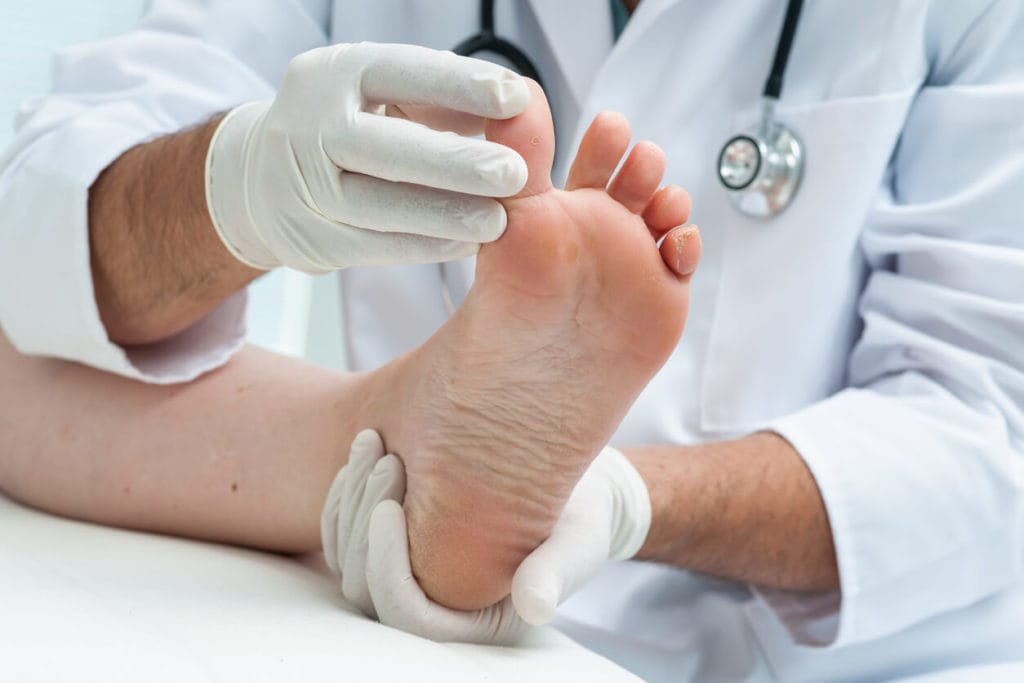
Ingrown toenails are more than just a painful inconvenience — they can significantly impact your daily life and, if left untreated, lead to serious complications. Understanding the top causes of ingrown toenails is the first step towards treating and preventing them.
Let us explore the primary reasons behind ingrown toenails and discuss how foot doctors can address these causes and support your path to optimal foot health.
What Is an Ingrown Toenail
An ingrown toenail happens when the edge of your toenail grows into the skin surrounding it, often causing pain, redness, and swelling. Sometimes, it can even lead to an infection if not treated properly. The big toe is usually the most affected, but other toes can suffer too.
Ingrown toenails are a common issue, and many people experience them at some point in their lives.
Common Causes of Ingrown Toenails
Ingrown toenails can be caused by various factors. Knowing the causes can help you take steps to prevent them and seek help from a foot doctor for ingrown toenails when needed.
Improper Nail Trimming
One of the leading causes of ingrown toenails is cutting your toenails incorrectly. If you trim them too short or round the edges, the nail may grow into the surrounding skin.
It is important to cut your toenails straight across and avoid overly trimming the corners. This simple practice can significantly reduce the risk of developing ingrown toenails.
Tight Footwear
Wearing shoes that are too tight or narrow can also contribute to ingrown toenails. Tight shoes put pressure on your toes, forcing the nails into the skin.
Injuries and Repeated Stress
Stubbing your toe or dropping something heavy on it can lead to an ingrown toenail. Even small injuries can cause the nail to grow into the skin.
Repeated activities like running or playing certain sports can also put stress on your toes, leading to similar problems.
Poor Foot Hygiene
Not keeping your feet clean and dry can lead to various foot problems, including ingrown toenails. Moisture can soften the skin around your nails, making it easier for the nail to pierce through.
Genetic Predisposition
Sometimes, genetics play a role in how your toenails grow. If your parents or grandparents had ingrown toenails, you might be more prone to them as well.
While you cannot change your genes, knowing your family history can help you take preventive measures early on.
Signs and Symptoms to Watch For
Here are the top signs and symptoms of ingrown toenails you should watch out for.
Pain and Tenderness
Pain is often the first sign of an ingrown toenail. You may feel tenderness when touching the affected toe or while walking.
The discomfort can range from mild to severe, depending on the severity of the ingrown nail.
Redness and Swelling
The skin around the affected toenail may appear red and swollen. This is a sign of inflammation caused by the nail growing into the skin. If left untreated, this can lead to infection and more severe symptoms.
Drainage or Pus
In some cases, an ingrown toenail can become infected, leading to drainage or pus. This is a more advanced stage of an ingrown toenail that requires immediate medical attention.
If you notice any of these symptoms, it is important to seek help from a foot doctor for ingrown toenails as soon as possible.
How Can a Foot Doctor Help
A foot doctor, also known as a podiatrist, is a medical specialist trained to diagnose and treat various conditions affecting the feet and ankles. Seeking their help for ingrown toenails can provide relief and prevent complications.
Proper Diagnosis
Before recommending any treatment, a foot doctor for ingrown toenails will examine your feet and ask about your symptoms. They may also take X-rays to determine the severity of the ingrown toenail.
This information helps them make an accurate diagnosis and tailor a treatment plan specifically for you.
Pain Relief
If you are experiencing discomfort due to an ingrown nail, a foot doctor for ingrown toenails can provide pain relief options such as topical creams or medications. In some cases, they may recommend a minor procedure to remove part of the ingrown nail and alleviate pressure.
Preventative Measures
A foot doctor for ingrown toenails can also provide expert advice on how to prevent ingrown toenails in the future. They may recommend proper nail trimming techniques, shoe choices, or other strategies based on your individual needs.
Foot Doctors for Ingrown Toenails in Central and South Florida
At Palm Medical Centers, we understand the importance of proactive foot care and are committed to helping you achieve optimal foot health. Our experienced podiatrists are equipped to address all your foot ailments, including persistent ingrown toenails.
In addition to podiatrists, we also have attentive doctors specializing in senior care who listen to you. We also offer:
- In-house labs
- Medicare same-day appointments, walk-ins, and minimal to no wait times
- Specialist care coordination
- Transportation assistance
- 24/7 access to the urgency line and care team
Schedule a consultation with us by calling (833)500-PALM (7256) to experience the compassionate and tailored care you deserve. You can also visit our patient portal to schedule a telehealth visit with one of our providers.

 4.8 Google Rating out of 7K Reviews
4.8 Google Rating out of 7K Reviews






